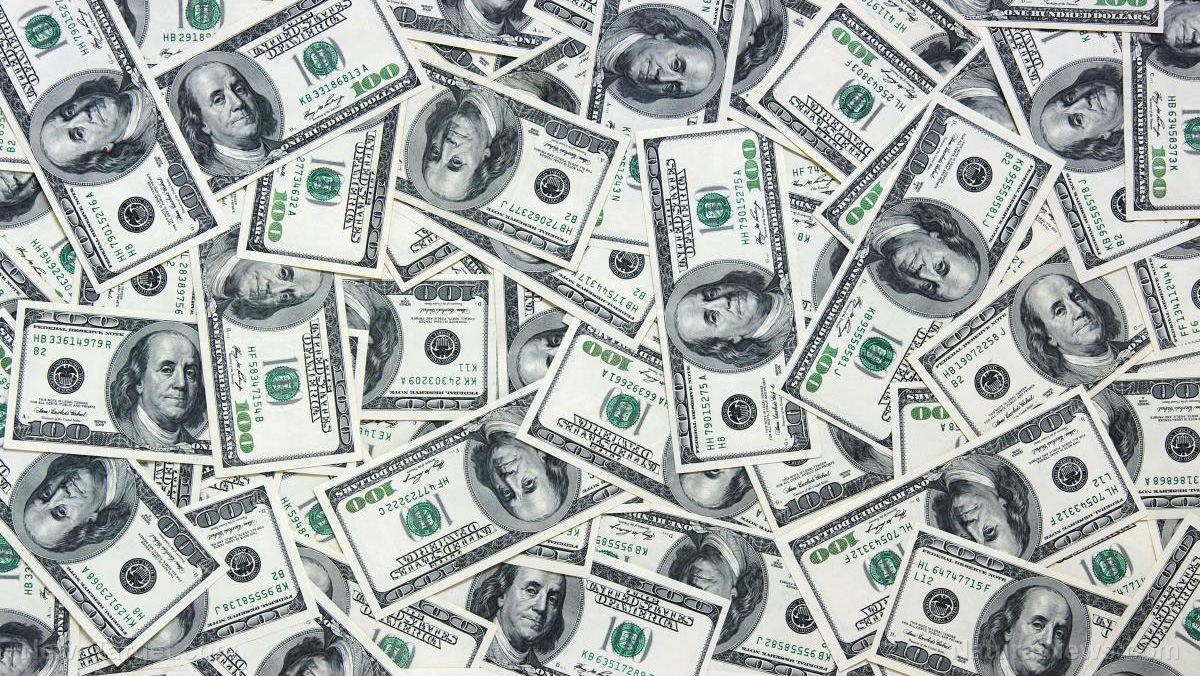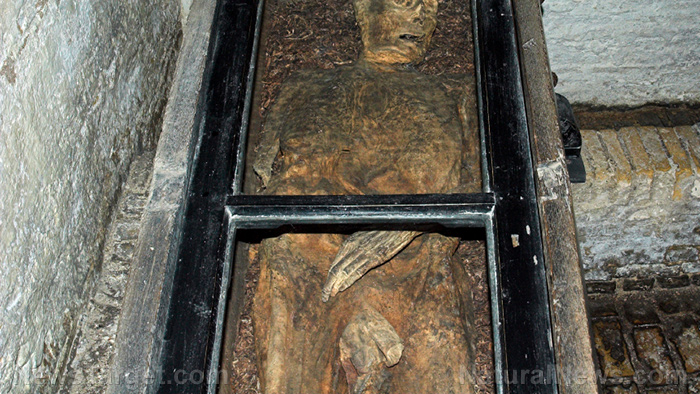
The Department of Health and Human Services (HHS) Office of Inspector General (OIG) has found that Medicare insurers drew $9.2 billion in federal payments in one year through questionable billing practices. One company has received approximately 40 percent – $3.7 billion – of the questionable payments despite enrolling only 22 percent of Medicare Advantage customers.
Federal investigators have found that 20 companies benefited disproportionately from the amount in question.
These findings add to the growing suspicions surrounding Medicare Advantage insurers, which offer private plans under the federal benefit program.
The inspector general's report focuses on certain procedures used by insurers to document health conditions, which helps determine how much they are paid. The investigators have said that the findings raise concerns that insurers might be manipulating the process to improperly boost federal payments. (Related: Corruption, fraud and bureaucracy cost US healthcare system up to $272 billion annually.)
Jacqueline Reid, who has led the HHS OIG team, says that the company highlighted in the report "definitely stood out and looked quite different from the other companies."
Data analysis reveals the biggest beneficiary in scheme
While the UnitedHealth Group is not named in the report, federal data compiled by analysts at BMO Capital Markets shows that enrollment share during the period covered in the report closely matched that of the industry giant's, which is the biggest player in Medicare Advantage.
In a statement, UnitedHealth says: "UnitedHealthcare's in-home clinical care programs provide significant benefits to seniors and for years have been valuable offerings to ensure our members continue to receive cost-effective, appropriate care. Our Medicare Advantage risk-adjustment program is transparent and compliant with CMS [Centers for Medicare and Medicaid Services] rules."
CMS oversees the Medicare Advantage program.
A CMS spokeswoman points to responses included in the report. Here, it said the recommendations would be taken under consideration and that CMS is "committed to ensuring that diagnoses that [Medicare Advantage organizations] submit for risk adjustment are accurate."
The report has focused on enrollment and documentation in 2016, and the resulting payments in 2017.
The payments the companies receive from the federal government are tied to the health status of their customers. Patients with more – and more serious – diagnoses generally draw higher payments from the health plans.
The HHS inspector general's investigation focused on two controversial strategies used by Medicare Advantage companies to tally diagnoses. In one, the insurers or their contractors review patients' charts for evidence of diagnoses that doctors did not specifically flag. The other involves health-risk assessments (HRAs) that are often conducted by the vendors in patients' homes.
Both strategies are allowed under Medicare rules, but "our findings raise concerns about the extent to which certain Medicare Advantage companies may have inappropriately leveraged both chart reviews and HRAs to maximize risk-adjusted payments," the report says.
Diagnoses don't match records of services to patients
The report has focused on diagnoses generated by these two methods that aren't found in the insurers' records of services rendered to patients. These imply that patients didn't get the care tied to the diagnoses.
According to the report, the suspect diagnoses were linked to around $9.2 billion in payments to Medicare Advantage plans in 2017. The 20 companies that have benefited disproportionately together drew 54 percent of that total while representing 31 percent of enrollment. The remaining 46 percent have gone to 142 companies that collectively enrolled 69 percent of the Medicare Advantage membership.
The unnamed large company highlighted in the report has generated about 58 percent of the payments in the analysis drawn by HRAs. Its share has been particularly large in payments tied to certain diagnoses, such as respiratory arrest, protein-calorie malnutrition and major depressive, bipolar and paranoid disorders.
The report's recommendations include having CMS "take additional actions to determine the appropriateness of payments and care for the one Medicare Advantage company that substantially drove risk-adjusted payments from chart reviews and HRAs."
The total number of people enrolled in Medicare Advantage plans has risen to more than 26 million this year, according to a Kaiser Family Foundation analysis released in June. That is about 42 percent of all Medicare beneficiaries, up from 31 percent five years ago.
Federal prosecutors and investigators are now paying more attention
Federal prosecutors and investigators are now taking a closer look at concerns that insurers are inflating the risk scores that result from documenting enrollees' diagnoses.
In March last year, federal prosecutors sued Anthem Inc. for allegedly reaping overpayments from the federal government by failing to delete inaccurate diagnosis codes.
In April, the HHS OIG released an audit of diagnosis codes submitted by Humana Inc. that found the company was overpaid about $200 million for 2015.
Humana, the-second biggest Medicare Advantage provider after UnitedHealth, said at the time that the inspector general’s "methodology is inconsistent with statistical and actuarial principles." It added that it would work cooperatively to resolve the review. The HHS inspector general also released reports last year and in 2019 looking at the industry's diagnosis-documentation practices.
In July, federal prosecutors announced that they were intervening in whistleblower suits focused on risk-score documentation against Kaiser Permanente.
Earlier this month, the Department of Justice joined another whistleblower action, suing Buffalo-based insurer Independent Health Association. The suit alleged that Independent Health submitted diagnosis codes that weren't supported by evidence.
Fraud during COVID-19 pandemic
Fraud in the industry extends through the Wuhan coronavirus (COVID-19) pandemic. (Related: New York healthcare network under investigation for fraudulently distributing COVID-19 vaccines.)
In May, federal prosecutors charged several people from different states in multiple COVID-related fraud schemes.
In Arkansas, a man who owns two testing laboratories was charged with healthcare fraud in connection with an alleged scheme to defraud the U.S. of more than $88 million. The man allegedly used access to beneficiary and medical provider information from prior lab testing orders to submit hundreds of fraudulent claims for urine, drug and other tests. Some of the falsely submitted claims were for beneficiaries who were already dead.
In New Jersey, a doctor allegedly ordered expensive and medically unnecessary cancer genetic testing for Medicare beneficiaries that attended a COVID-19 testing event that he participated in. The man also allegedly billed Medicare for services to beneficiaries that he never provided, totaling about $19 million in healthcare fraud schemes.
Also in New Jersey, a man who was a partner at a diagnostic testing lab allegedly offered kickbacks in exchange for respiratory pathogen tests that were improperly bundled with COVID tests and billed to Medicare. The man allegedly paid and received bribes in a scheme totaling $5.4 million.
In New York, charges were brought against two people who owned several pharmacies and sham pharmacy wholesaling companies for allegedly committing health-care fraud, wire fraud and money laundering totaling $45 million. The two and their co-conspirators allegedly acquired billing privileges for multiple pharmacies. They also allegedly submitted fraudulent claims to Medicare by abusing emergency COVID-19 rules to avoid otherwise applicable limits on refills for expensive drugs.
Follow Pandemic.news for more news related to healthcare fraud schemes during the coronavirus pandemic.
Sources include:
Please contact us for more information.




















